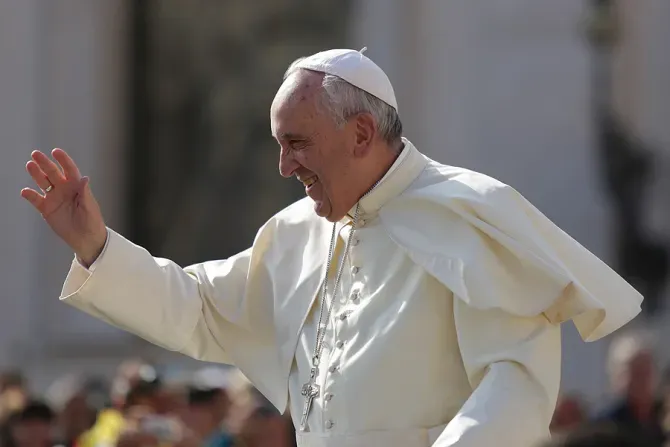The World Bank estimated in October that the pandemic could push as many as 115 million additional people into extreme poverty by 2021. It said that it expected global extreme poverty -- defined as living on less than $1.90 a day -- to rise in 2020 for the first time in more than 20 years.
The pope wrote: “Some countries are suffering extremely severe consequences from the pandemic, so that the most vulnerable of their people lack basic necessities. The long lines in front of soup kitchens are a tangible sign of this deterioration.”
“There is a clear need to find the most suitable means of combating the virus at the global level without promoting partisan interests.”
“It is especially urgent to offer concrete responses to those who are unemployed, whose numbers include many fathers, mothers, and young people.”
Pope Francis established the World Day of the Poor in his apostolic letter Misericordia et misera, issued in 2016 at the end of the Church’s Jubilee Year of Mercy.
(Story continues below)
The idea came about, he explained, during the Jubilee for Socially Excluded People.
“At the conclusion of the Jubilee of Mercy, I wanted to offer the Church a World Day of the Poor, so that throughout the world Christian communities can become an ever greater sign of Christ’s charity for the least and those most in need,” the pope wrote in his first World Day of the Poor message in 2017.
The Day is celebrated each year on the 33rd Sunday of Ordinary Time, a week before the Feast of Christ the King. This year, it will fall on Nov. 14.
Coronavirus restrictions forced the Vatican to scale down its commemoration of the World Day of the Poor in 2020. It was unable to host a “field hospital” for the poor in St. Peter’s Square as it had in previous years. But it distributed 5,000 parcels to Rome’s poor and gave 350,000 masks to schools.
Pope Francis followed his custom of marking the day by celebrating a Mass in St. Peter’s Basilica.
Presenting the papal message at a Vatican press conference on June 14, Archbishop Rino Fisichella noted that the pope highlighted the example of St. Damien of Molokai.
The Belgian priest, canonized in 2009, ministered to leprosy sufferers in Hawaii.
“Pope Francis calls to mind the witness of this saint in confirmation of so many men and women, including hundreds of priests, who in this COVID-19 drama have been willing to share totally in the suffering of millions of infected people,” the president of the Pontifical Council for the Promotion of the New Evangelization said.
In the message, signed on June 13, the memorial of St. Anthony of Padua, the pope argued that nowadays people in prosperous countries “are less willing than in the past to confront poverty.”
“The state of relative affluence to which we have become accustomed makes it more difficult to accept sacrifices and deprivation. People are ready to do anything rather than to be deprived of the fruits of easy gain,” he argued.
“As a result, they fall into forms of resentment, spasmodic nervousness and demands that lead to fear, anxiety and, in some cases, violence. This is no way to build our future; those attitudes are themselves forms of poverty which we cannot disregard.”
“We need to be open to reading the signs of the times that ask us to find new ways of being evangelizers in the contemporary world. Immediate assistance in responding to the needs of the poor must not prevent us from showing foresight in implementing new signs of Christian love and charity as a response to the new forms of poverty experienced by humanity today.”
The pope said he hoped that this year’s commemoration of the World Day of the Poor would inspire a new movement of evangelization at the service of disadvantaged people.
“We cannot wait for the poor to knock on our door; we need urgently to reach them in their homes, in hospitals and nursing homes, on the streets and in the dark corners where they sometimes hide, in shelters and reception centers,” he wrote.
Concluding his message, the pope cited the influential 20th-century Italian priest Fr. Primo Mazzolari, who he honored in 2017.
He wrote: “Let us make our own the heartfelt plea of Fr. Primo Mazzolari: ‘I beg you not to ask me if there are poor people, who they are and how many of them there are, because I fear that those questions represent a distraction or a pretext for avoiding a clear appeal to our consciences and our hearts... I have never counted the poor, because they cannot be counted: the poor are to be embraced, not counted.’”
“The poor are present in our midst. How evangelical it would be if we could say with all truth: we too are poor, because only in this way will we truly be able to recognize them, to make them part of our lives and an instrument of our salvation.”








